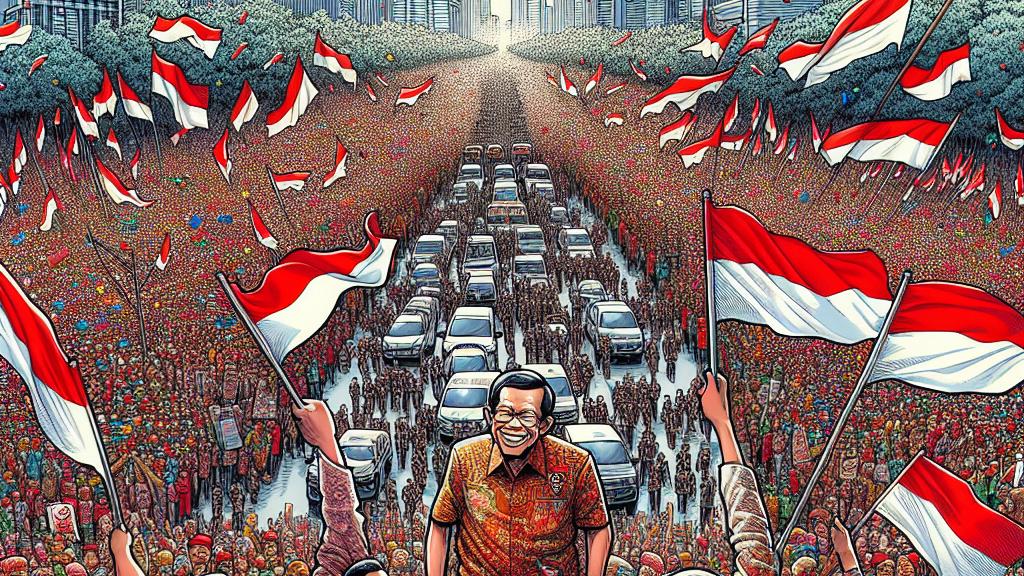Prabowo Subianto Becomes President of Indonesia
Overview
- Prabowo Subianto's inauguration marks a new era for Indonesia as the nation's eighth president.
- He secured nearly 60% of the votes with promises of transformative policies and economic growth.
- However, his past raises significant concerns about the future of democracy in Indonesia.

Inauguration Ceremony
On October 20, 2024, Jakarta transformed into a vibrant sea of colors and sounds as Prabowo Subianto was inaugurated as Indonesia's eighth president. Thousands of jubilant supporters lined the streets, waving flags and chanting his name, creating an atmosphere charged with excitement and hope. This event wasn't merely ceremonial; it was the culmination of a long and arduous campaign in which Prabowo emerged victorious with nearly 60% of the popular vote, positioning himself as a key figure in Indonesia's political evolution. As he stood at the podium, flanked by the young Gibran Rakabuming Raka, the son of the outgoing president, he signaled a new generation taking the helm, yet one entangled in the complexities of Indonesia's past.
Promises and Policies
Throughout his campaign, Prabowo painted a vivid picture of his vision for Indonesia, making bold promises designed to resonate deeply with the electorate. His flagship initiative—providing free meals for children in schools—aims not only to address hunger but also to enhance educational opportunities for the nation's youth. Additionally, he set a daring goal: boosting Indonesia’s economic growth from an already respectable 5% to an ambitious 8%. This ambitious economic vision includes enhancing agricultural self-sufficiency and furthering Indonesia's role on the global stage. However, alongside these glimmers of hope, questions linger about his controversial military past, particularly concerning allegations of human rights abuses. This duality presents a complex narrative; while many citizens welcome economic optimism, others remain cautious about the potential shadows of previous authoritarian practices encroaching on their democratic liberties.
Concerns About Democratic Stability
As Prabowo embarks on his presidency, significant concerns emerge regarding the stability of democracy in Indonesia. Historically, the nation has been lauded for its strides in establishing a vibrant democratic framework; however, many fear that Prabowo's leadership might reverse these hard-won gains. The elevation of a figure with a military background brings about apprehensions of a resurgence in authoritarianism that could erode civil liberties. Moreover, societal divisions, particularly against ethnic minorities and religious groups, could deepen under his rule, igniting tensions reminiscent of darker times in Indonesian history. The intertwining of populism and nationalism in Prabowo's rhetoric raises questions about inclusivity and respect for diversity. As the nation watches closely, the looming question remains: will Prabowo's administration solidify democratic principles, or will it lead Indonesia into a precarious new phase fraught with challenges?

Loading...